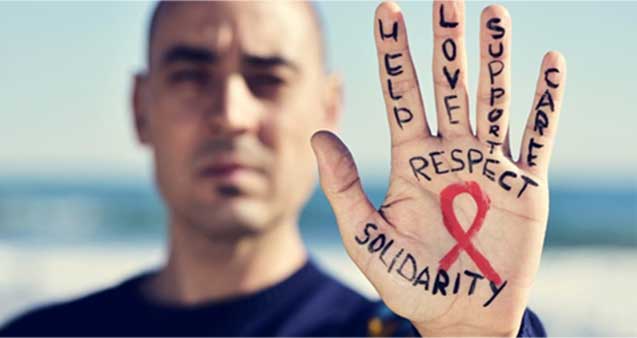The Importance of Early Detection: Syphilis Symptoms in Females
In Jacksonville, Florida, taking charge of your health is paramount for a vibrant and fulfilling life. At Hope Across The Globe, we understand the significance of early detection and treatment in combating sexually transmitted diseases (STDs). Today, we’ll delve into the specific symptoms of syphilis in women, emphasizing why recognizing these signs promptly is critical for your overall well-being.
Understanding Syphilis
Syphilis, caused by the bacterium Treponema pallidum, is a sexually transmitted infection primarily spread through intimate contact. This bacterium can also pass from an infected mother to her unborn child during pregnancy or childbirth. Syphilis progresses through distinct stages, each presenting its own set of symptoms and potential health complications if left untreated.
Exploring Syphilis Symptoms in Females: Discharge and Vaginal Health
When it comes to sexually transmitted diseases (STDs), syphilis is one of the most significant infections that can impact a woman’s overall health. In particular, the symptoms of syphilis in females often include abnormal discharge, which can be an early warning sign of the infection. Understanding these symptoms and their implications is crucial for timely diagnosis and treatment, ensuring that the infection does not progress to more severe stages.
The Importance of Recognizing Abnormal Vaginal Discharge
Vaginal discharge is a natural and healthy bodily function that helps to maintain the cleanliness and pH balance of the vagina. However, when there is an infection, such as syphilis, the discharge can change in color, consistency, and odor. Recognizing these changes is essential for detecting the presence of syphilis and other STDs early on.
1. What is Considered Normal Vaginal Discharge?
- Normal vaginal discharge is usually clear or milky white and may vary in consistency throughout the menstrual cycle. It generally has a mild odor and serves to keep the vagina clean by removing dead cells and bacteria.
- The amount of discharge can fluctuate based on hormonal changes, sexual activity, and overall health. However, it should not cause discomfort, itching, or irritation.
2. Signs of Abnormal Vaginal Discharge:
- Color Changes: One of the most common signs of abnormal vaginal discharge associated with syphilis is a color change. Discharge may become yellow, greenish, or even bloody. This change often indicates an underlying infection that requires medical attention.
- Consistency Alterations: The discharge may also become thicker, frothy, or unusually sticky, differing from the typical clear or milky fluid. Any significant deviation in texture could be a sign of infection.
- Unpleasant Odor: While normal discharge has a mild odor, an unpleasant or foul smell is often a sign of an infection like syphilis. This change in odor may be accompanied by other symptoms, such as itching or irritation.
How Syphilis Causes Vaginal Discharge
Syphilis, particularly in its primary and secondary stages, can lead to various symptoms that may include abnormal vaginal discharge. This discharge is often a result of the body’s response to the infection and the damage caused by the bacteria.
1. Primary Stage
- During the primary stage of syphilis, the infection typically manifests as painless sores, or chancres, at the site where the bacteria entered the body. These sores can occur on the external genitalia, vaginal walls, or cervix in women.
- Although these chancres are usually painless, they can sometimes cause a slight increase in vaginal discharge. This discharge may be tinged with blood if the sores are present inside the vagina or on the cervix.
Symptoms:
- Painless Sores (Chancres)
- Appearance and Duration: Chancres usually appear about three weeks to three months after exposure to the syphilis bacteria. They are generally round, firm, and painless, making them easy to overlook or mistake for other skin conditions.
2. Secondary Stage
- As syphilis progresses to the secondary stage, the bacteria spread throughout the body, causing more systemic symptoms. One of the symptoms that women may experience during this stage is an increase in abnormal vaginal discharge.
- This discharge may be due to the development of wart-like growths known as condylomata lata in the genital area. These growths can produce secretions that mix with vaginal discharge, leading to changes in appearance and odor.
Symptoms:
- Rash: The secondary stage of syphilis is characterized by a rash that can manifest anywhere on the body, including the palms of the hands and the soles of the feet. The rash may be reddish-brown or copper-colored and is typically non-itchy. It may appear as small, raised bumps or flat patches.
- Flu-Like Symptoms: Along with the rash, individuals may experience symptoms resembling the flu, such as fever, swollen lymph nodes, sore throat, fatigue, and muscle aches.
- Genital Warts: In some cases, females with secondary syphilis may develop wart-like growths in the genital area, known as condylomata lata. These growths are highly contagious and can spread the infection to sexual partners.
3. Latent and Tertiary Stages
- In the latent stage, syphilis becomes asymptomatic, meaning that the infection is still present in the body but not causing any noticeable symptoms. However, if syphilis progresses to the tertiary stage, it can cause severe damage to various organs, including the reproductive system.
- At this stage, while vaginal discharge may not be a prominent symptom, the overall health of the reproductive system can be severely compromised, leading to complications that may affect vaginal health and discharge.
Symptoms:
- Asymptomatic Phase: After the secondary stage, syphilis enters a latent phase where the infection remains dormant and does not cause any symptoms of syphilis in women. This phase can last for years, during which the disease may progress to the tertiary stage.
- Tertiary Syphilis: Without treatment, symptoms of syphilis in females can progress to the tertiary stage, which can cause severe damage to various organs, including the heart, brain, nerves, and bones. Tertiary syphilis can lead to severe complications such as cardiovascular problems, neurosyphilis (affecting the nervous system), and gummatous syphilis (resulting in soft tissue lesions).
Localized Symptoms:
- Vaginal Discharge: In some cases, females with primary or secondary syphilis may experience abnormal vaginal discharge. This discharge may be different in color, consistency, or odor compared to normal vaginal secretions. It may be accompanied by other symptoms of syphilis in women, such as itching or irritation.
- Pain or Discomfort: While chancres in the primary stage of syphilis are typically painless, they may occasionally cause discomfort or tenderness, mainly if they occur in sensitive areas such as the vaginal opening or cervix.
Systemic Symptoms:
- Fatigue and Malaise: Beyond the flu-like symptoms associated with the secondary stage of syphilis, individuals may experience persistent fatigue and feelings of malaise or general unwellness. These syphilis symptoms in females can impact daily functioning and quality of life.
- Joint Pain: Some individuals with secondary syphilis may develop joint pain or swelling, known as syphilitic arthritis. This condition can affect multiple joints and may cause stiffness, limited range of motion, and discomfort, particularly in the wrists, knees, and ankles.
Neurological Symptoms:
- Headaches: Syphilis can affect the central nervous system, leading to neurological symptoms such as headaches. These headaches may be severe and persistent, and worsen if left untreated.
- Vision Changes: Neurosyphilis, a late-stage complication of syphilis involving the nervous system, can cause various visual disturbances, including blurred vision, vision loss, or changes in color perception. These symptoms may indicate inflammation or damage to the optic nerve or other parts of the visual pathway.
Miscellaneous Symptoms:
- Swollen Lymph Nodes: In addition to the systemic symptoms associated with the secondary stage of syphilis, individuals may notice swollen or tender lymph nodes in the groin, neck, or other areas of the body. Lymph node enlargement is a common sign of an immune response to infection and inflammation.
- Skin Lesions: In rare cases, syphilis can cause skin lesions or ulcers resembling those seen in other dermatological conditions. These lesions may be misdiagnosed without proper testing and evaluation by a healthcare professional familiar with syphilis.
The timely detection of syphilis is crucial for preventing disease progression and minimizing complications. Recognizing symptoms of syphilis in women and seeking prompt medical attention enables immediate STD treatment with antibiotics, such as penicillin, which are highly effective in curing syphilis during its early stages. Moreover, early detection facilitates the identification and treatment of infected sexual partners, preventing further transmission within the community.
For individuals in Jacksonville, Florida, concerned about STDs, numerous healthcare providers and clinics offer confidential STD testing and treatment services. These facilities prioritize patient privacy and provide compassionate care for individuals seeking assistance with their sexual health concerns.
Differential Diagnosis: When Vaginal Discharge May Indicate Other Infections
While abnormal vaginal discharge can be a symptom of syphilis, it’s important to consider that other infections can cause similar symptoms. Accurate diagnosis is essential for effective treatment, as different infections require different approaches.
1. Bacterial Vaginosis (BV):
- BV is a common vaginal infection caused by an imbalance in the bacteria naturally present in the vagina. It can cause discharge that is grayish-white, thin, and has a fishy odor. Unlike syphilis, BV is not sexually transmitted but can increase susceptibility to STDs.
- Treatment for BV typically involves antibiotics, but it is crucial to distinguish it from syphilis to ensure appropriate care.
2. Trichomoniasis:
- Trichomoniasis is another sexually transmitted infection that can cause abnormal vaginal discharge. The discharge associated with trichomoniasis is often frothy, yellow-green, and has a strong odor. It may also be accompanied by itching and discomfort during urination or sexual intercourse.
- Like syphilis, trichomoniasis requires prompt treatment to prevent complications and transmission to sexual partners.
3. Gonorrhea and Chlamydia:
- Both gonorrhea and chlamydia are STDs that can cause abnormal vaginal discharge. The discharge from these infections is often yellowish or greenish and may be accompanied by pelvic pain, burning during urination, and bleeding between periods.
- Since these infections can co-occur with syphilis, it is vital to get tested for all STDs if any symptoms, including abnormal discharge, are present.
The Importance of STD Testing for Women in Jacksonville, Florida
In Jacksonville, Florida, where sexual health services are readily available, it is important for women to take advantage of STD testing to ensure their reproductive health is not compromised. Early detection of syphilis and other STDs through regular testing can prevent long-term complications and promote overall well-being.
1. Why Early Detection Matters
- Early detection of syphilis is crucial for preventing the progression of the disease to its more severe stages. When caught in its primary or secondary stage, syphilis can be effectively treated with antibiotics, such as penicillin, which can cure the infection and prevent further health issues.
- Regular testing is especially important for women who are sexually active, have multiple partners, or are pregnant, as untreated syphilis can have serious consequences for both the woman and her unborn child.
2. Where to Get Tested
- Numerous healthcare providers and clinics in Jacksonville, Florida, offer confidential STD testing and treatment services. These facilities prioritize patient privacy and provide compassionate care for individuals seeking assistance with their sexual health concerns.
- Hope Across The Globe is dedicated to promoting sexual health awareness and providing resources for those in need of testing and treatment. The organization works closely with local healthcare providers to ensure that everyone has access to the care they need.
3. Preventing the Spread of Syphilis
- In addition to getting tested and treated, practicing safe sex is essential for preventing the spread of syphilis and other STDs. Using condoms correctly and consistently, limiting the number of sexual partners, and having open discussions about STD status with partners can all reduce the risk of transmission.
- Hope Across The Globe also advocates for regular sexual health check-ups as part of a comprehensive approach to maintaining sexual health and preventing the spread of infections within the community.
FAQs (Frequently Asked Questions)
Q: How is syphilis diagnosed?
Syphilis is typically diagnosed through a blood test that detects antibodies to Treponema pallidum. Sometimes, healthcare providers may also collect samples from chancres or other sores for testing.
Q: Can syphilis be cured?
Yes, syphilis can be cured with appropriate antibiotic treatment, primarily penicillin. However, early treatment is crucial to prevent disease progression and reduce the risk of complications.
Q: What should I do if I suspect syphilis?
If you suspect syphilis or any STD, it’s essential to seek STD testing and treatment from a healthcare provider or sexual health clinic promptly. Early detection and treatment are vital for protecting your health and well-being.
Related Tag: Jacksonville STD Clinic






